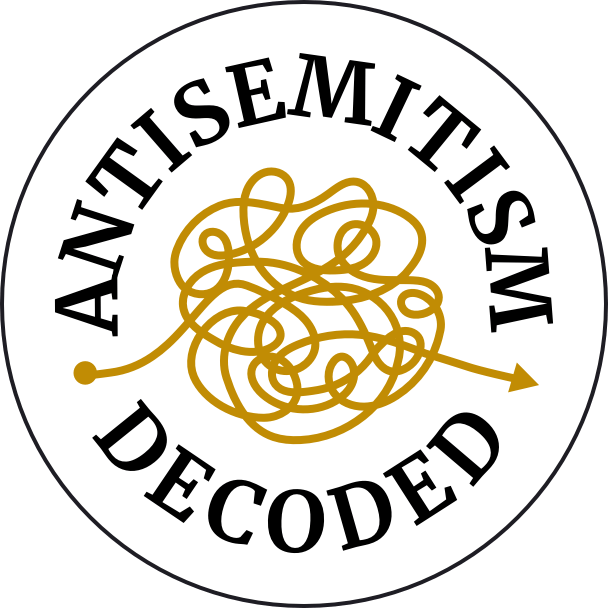John. S. Ruskay, former CEO of UJA-Federation of New York, helped organize a letter calling for a more forceful Jewish response to the Trump administration. Photo by Getty Images
More than three dozen former leaders of major Jewish organizations published an open letter in The New York Times rebuking current leadership for being “far too silent about the stunning assault on democratic norms.”
Although they did not name President Donald Trump in the letter published Thursday, the signatories — which included directors and former chairs of the Anti-Defamation League, American Jewish Committee, Hillel International, the American Israel Public Affairs Committee and major federations — decried his administration’s approach to fighting antisemitism.
“A range of actors are using a purported concern about Jewish safety as a cudgel,” they wrote. “We call on Jewish leaders and institutions – national and local – to resist the exploitation of Jewish fears.”
It was the latest salvo in a war over how American Jews should respond to the Trump administration, which has launched an unprecedented crackdown on colleges and universities in the name of protecting Jews.
These moves, including freezing billions of dollars in federal funding and canceling hundreds of student visas, were initially welcomed by groups like the ADL and AJC, though those organizations have since tempered their enthusiasm.
The Reform and Conservative movements endorsed a statement from the Jewish Council for Public Affairs last month that rejected “the false choice between confronting antisemitism and upholding democracy.” But as that statement was circulating, Eric Fingerhut, the Jewish Federations of North America CEO, warned local affiliates not to sign it. Fingerhut’s organization, which hosted Trump officials for a briefing on campus antisemitism, distributes millions of dollars to federations around the country.
John Ruskay, who ran UJA-Federation of New York from 1999 to 2014, helped organize Thursday’s letter to provide cover for Jewish leaders who have told him they want to oppose the Trump administration more forcefully but feel constrained.
“There are many winds — politically, philanthropically and elsewhere — which may be making it more difficult for some to speak out,” Ruskay said in an interview. “This was an attempt to say there’s also a strong segment of senior Jewish leadership who believe that as a community we can be doing more.”
The letter said that the federal government was using antisemitism as an excuse to “weaken higher education, due process, checks and balances, freedom of speech and the press” and argued that these liberal institutions are “the cornerstone of American democracy and enabled American Jewry to thrive.”
Debate between Jewish concerns and broader ones
Through the 1950s, most Jewish organizations in the United States prioritized assimilation and support for liberal values over policies that more narrowly impacted Jews. The failure to save Jews during the Holocaust pushed many Jewish leaders to focus more narrowly on defending what were perceived to be Jewish interests in the decades that followed, said Jonathan Sarna, a historian at Brandeis University.
Sarna sees the more narrow, Jewish focus dominating the response to Trump.
“I don’t think any Jewish leader disagrees that the democratic values pointed to in that letter are important,” Sarna said in an interview. “But they feel that at a difficult moment, where there’s no agreement as to what the highest Jewish priorities should be, they’re going to go with supporting Israel and fighting antisemitism — knowing, I think, that there’s a price to pay for that.”
The Anti-Defamation League was one of the most vocal Jewish organizations backing Trump’s decision to arrest and seek to deport Mahmoud Khalil, a permanent resident and a recent Columbia graduate who was accused of leading protests that created a hostile environment for Jews on the campus.
Jonathan Greenblatt, the ADL’s chief executive, has since tempered his support for the crackdown on college campuses, warning in an essay last month that “if we sacrifice our constitutional freedoms in the pursuit of security, we undermine the very foundation of the diverse, pluralistic society we seek to defend.”
Thursday’s letter, which was published as both an ad in the Times and online, dismissed “modest declarations of ’respecting the rule of law’ and similar phrases.” One of its signatories was Robert Sugarman, who was national chair of the ADL from 2009 until 2012, before leading the Conference of Presidents of Major American Jewish Organizations.
Marjorie Feld, a professor at Babson College who has studied the history of American Jewish politics, said the letter was significant because it was endorsed by prominent figures who had also long focused on narrow Jewish interests.
“A lot of these Jewish leaders, in their own eras, were digging in their heels and advocating for what they thought were expressly Jewish communal priorities,” she said. “But now a tripwire has been activated, civil liberties are being threatened, fascism is on the rise and there’s just a growing sense that urgent action is necessary.”

I hope you appreciated this article. Before you go, I’d like to ask you to please support the Forward.
Now more than ever, American Jews need independent news they can trust, with reporting driven by truth, not ideology. We serve you, not any ideological agenda.
At a time when other newsrooms are closing or cutting back, the Forward has removed its paywall and invested additional resources to report on the ground from Israel and around the U.S. on the impact of the war, rising antisemitism and polarized discourse.
This is a great time to support independent Jewish journalism you rely on. Make a gift today!
— Rachel Fishman Feddersen, Publisher and CEO
